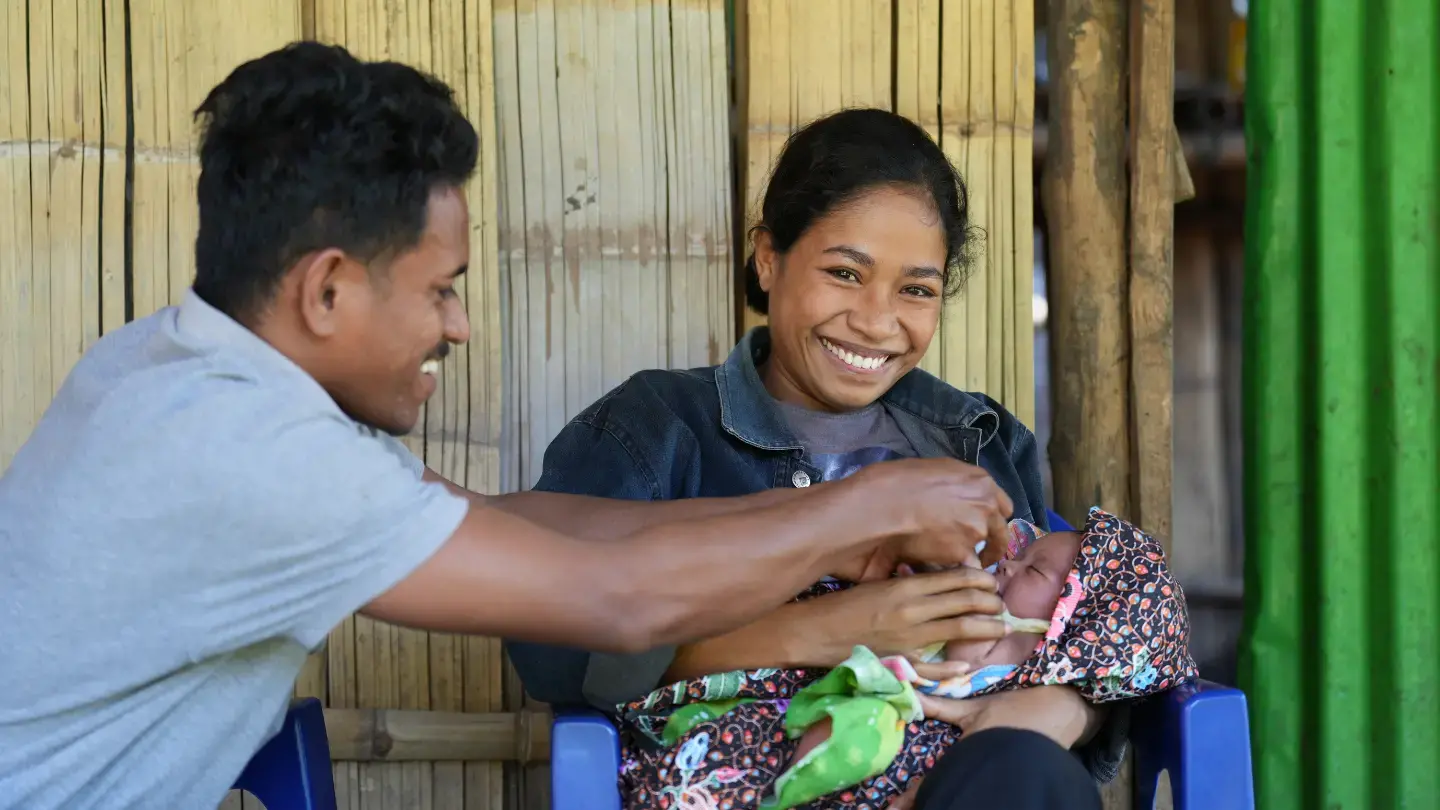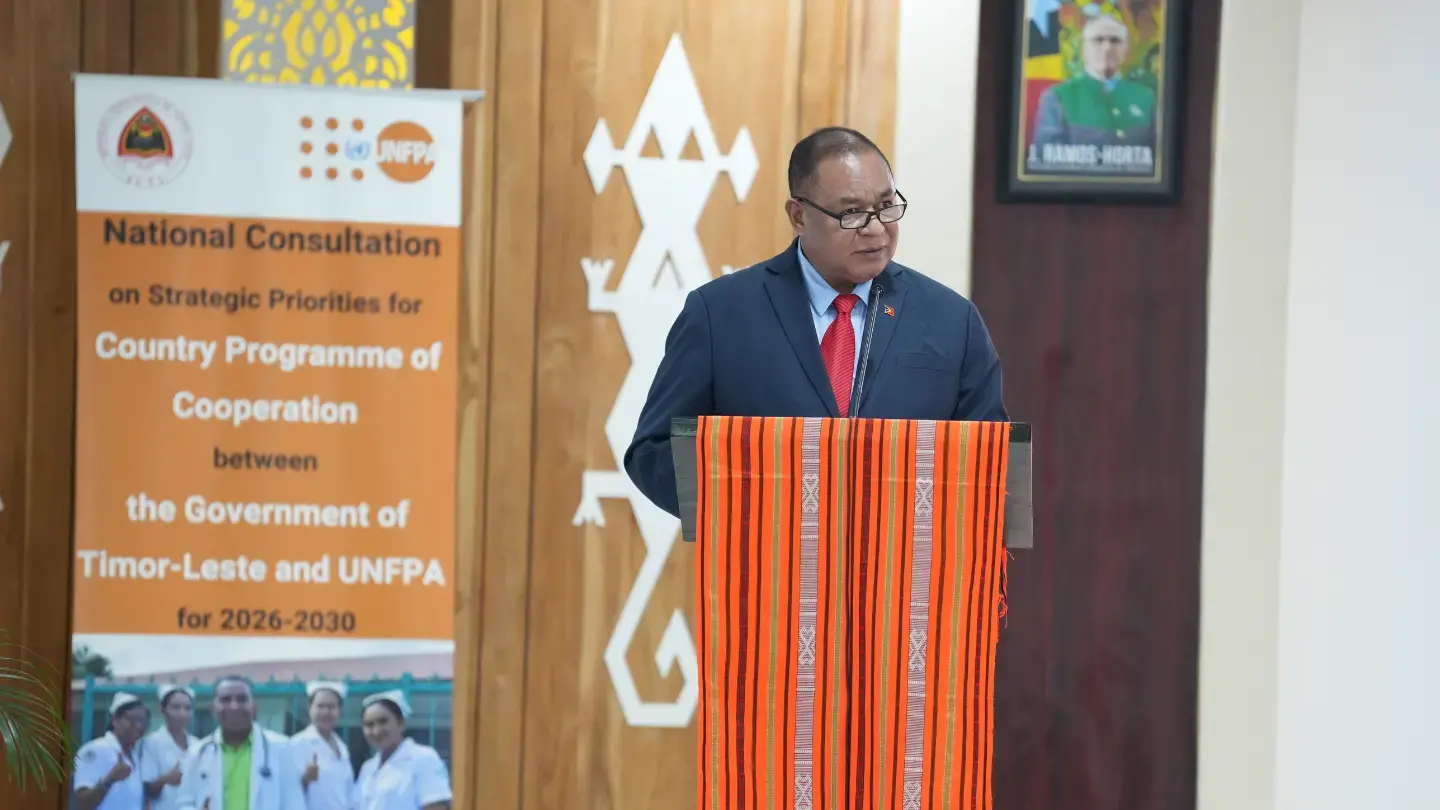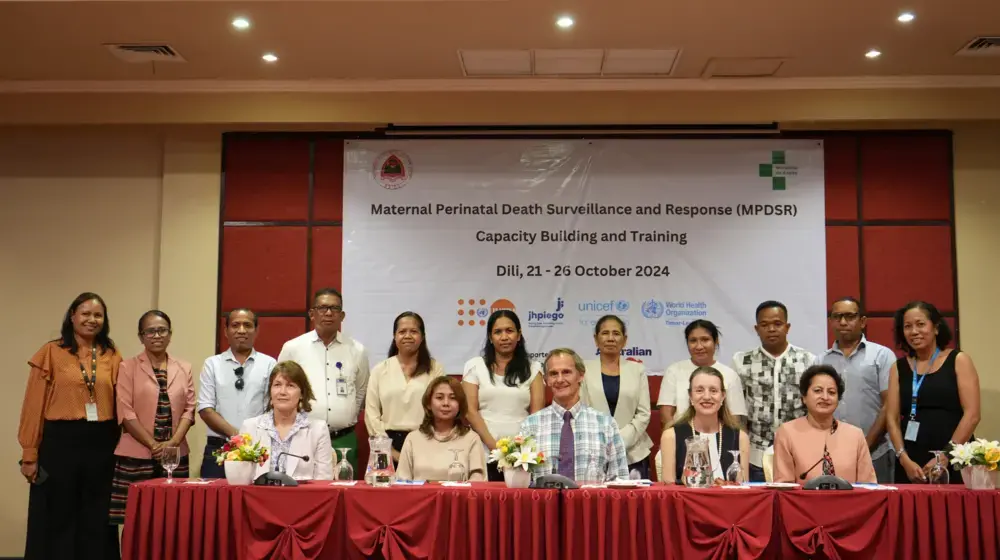Yesterday the establishment of a national task force to improve midwifery and maternal health was announced after a high level meeting took place in Instituto Nacional de Saude. Key policy makers and stakeholders gathered to discuss the strengthening of midwifery in Timor-Leste in order to improve the quality of healthcare given to mothers, newborns, and families.
The President of Parliamentary Commission F of the National Parliament, Sr. Virigilio da Costa Hornai, Vice-President of Parliamentary Commission F Eduardo Barreto de Deus, Parliamentary Commission F members Eladio Faculto and Leonel Marcal and representatives from UNFPA, WHO, UNICEF, and APTL members (Associaçao das Parteiras de Timor Leste) attended yesterday’s meeting.
During the meeting Dr. Lidia Gomez presented an Action Plan on Addressing Gaps in Midwifery Education, Regulation and Association. This plan was developed at an important two day advocacy workshop which assessed the gaps and challenges for midwifery in Timor- Leste held in Delta Nova from August 23rd to August 24th. ICM (International Confederation of Midwives) and UNFPA provided technical support but the action plan was developed by the midwives and participants themselves on how to strengthen the three pillars of midwifery; education, regulation, and association in Timor-Leste. Dr. Lidia Gomez the President of APTL said that if Timor-Leste could implement and adapt the 3 pillars of midwifery to the ICM global standard over 90% of maternal and infant deaths here could be prevented.
The current maternal mortality rate in Timor-Leste is 557 deaths per 100,000 live births. This figure remains unacceptably high when compared with other countries in the Asia Pacific region. The establishment of a national taskforce is a very important step forward to improve the quality of midwifery services throughout Timor-Leste and ultimately save lives. The taskforce will be responsible for overseeing the implementation of APTL’s Action Plan to Addressing Gaps in Midwifery.
One of the priorities for the taskforce will be to establish a regulatory system for midwives. Dr. Lidia Gomez said that ‘That is the most important thing to produce the regulations to create the mechanism to guarantee the quality of the service by members of the association. [presently] We have no regulation and policy on how to control the quality of the midwife when they practice in the field.’ The taskforce will also work on developing the faculty of midwifery at UNTL, providing more equipment and clinical training for the midwifery students. The taskforce will also be responsible for identifying potential donors to support the activities outlined in the action plan and setting up a Midwifery Council.
Only 30% of births are attended by skilled health personnel in Timor-Leste and in the districts the percentage is even lower. Strengthening midwifery and ensuring that all midwives are trained and regulated to meet international standards will save lives and reduce poverty.
APTL have made great progress since collaborating with the International Confederation of Midwives over one year ago. APTL are currently trying to adopt and implement international standards of midwifery across their profession. It is hoped that this new taskforce will lead to stronger commitment from government ministries and development and implementing partners to strengthen this crucial component of reproductive health services in Timor-Leste.




